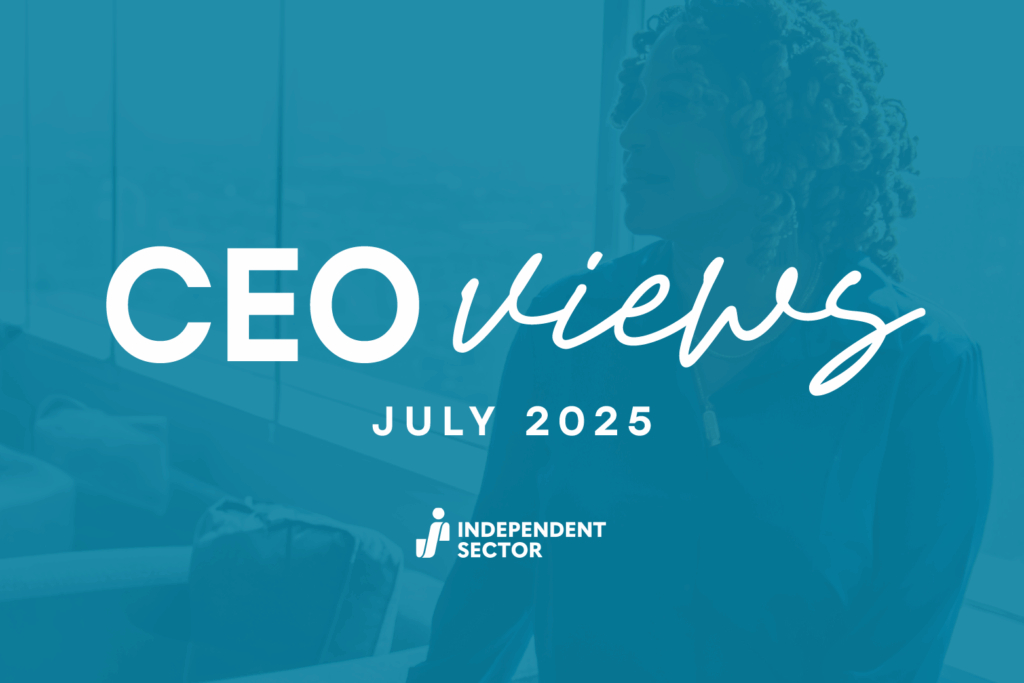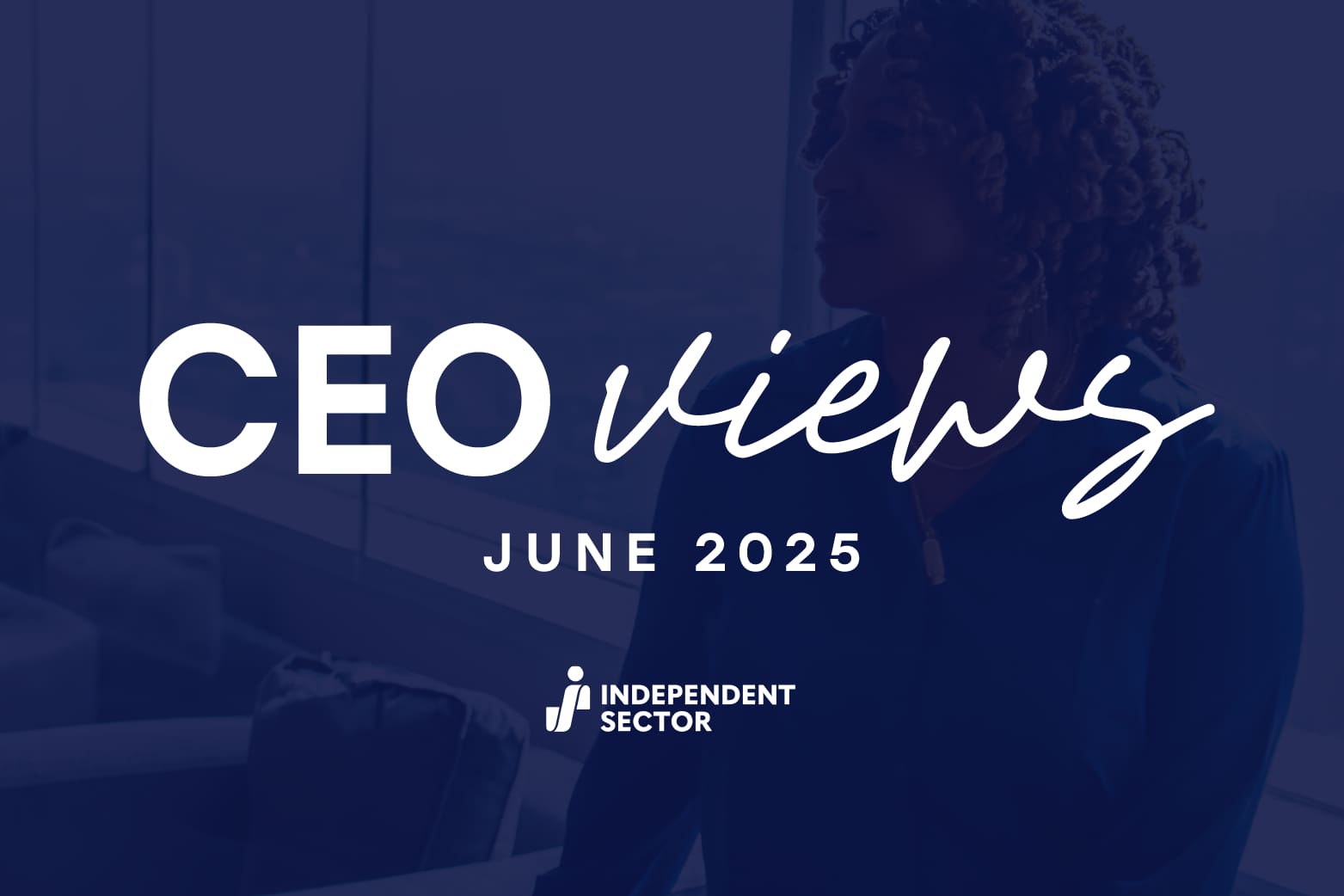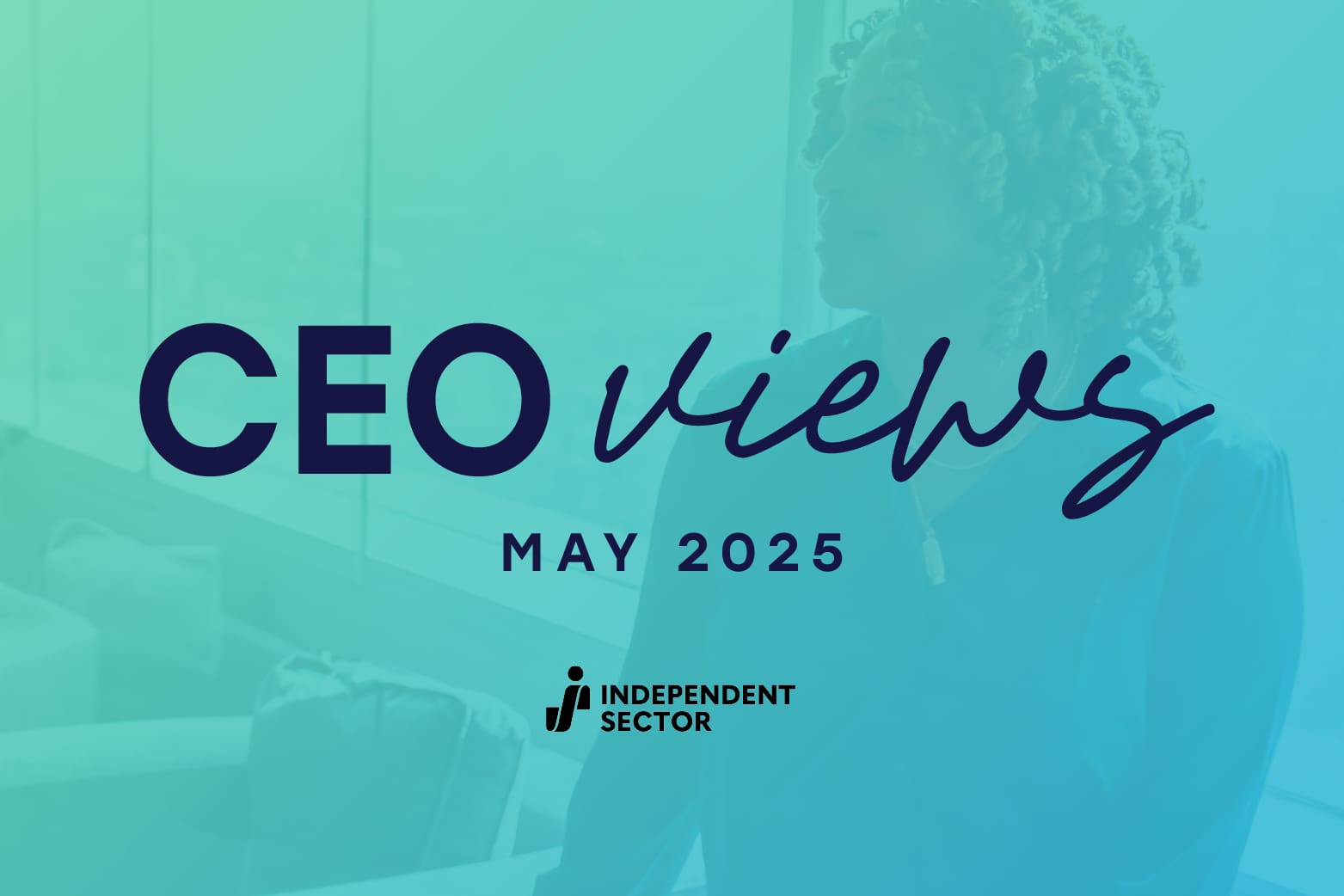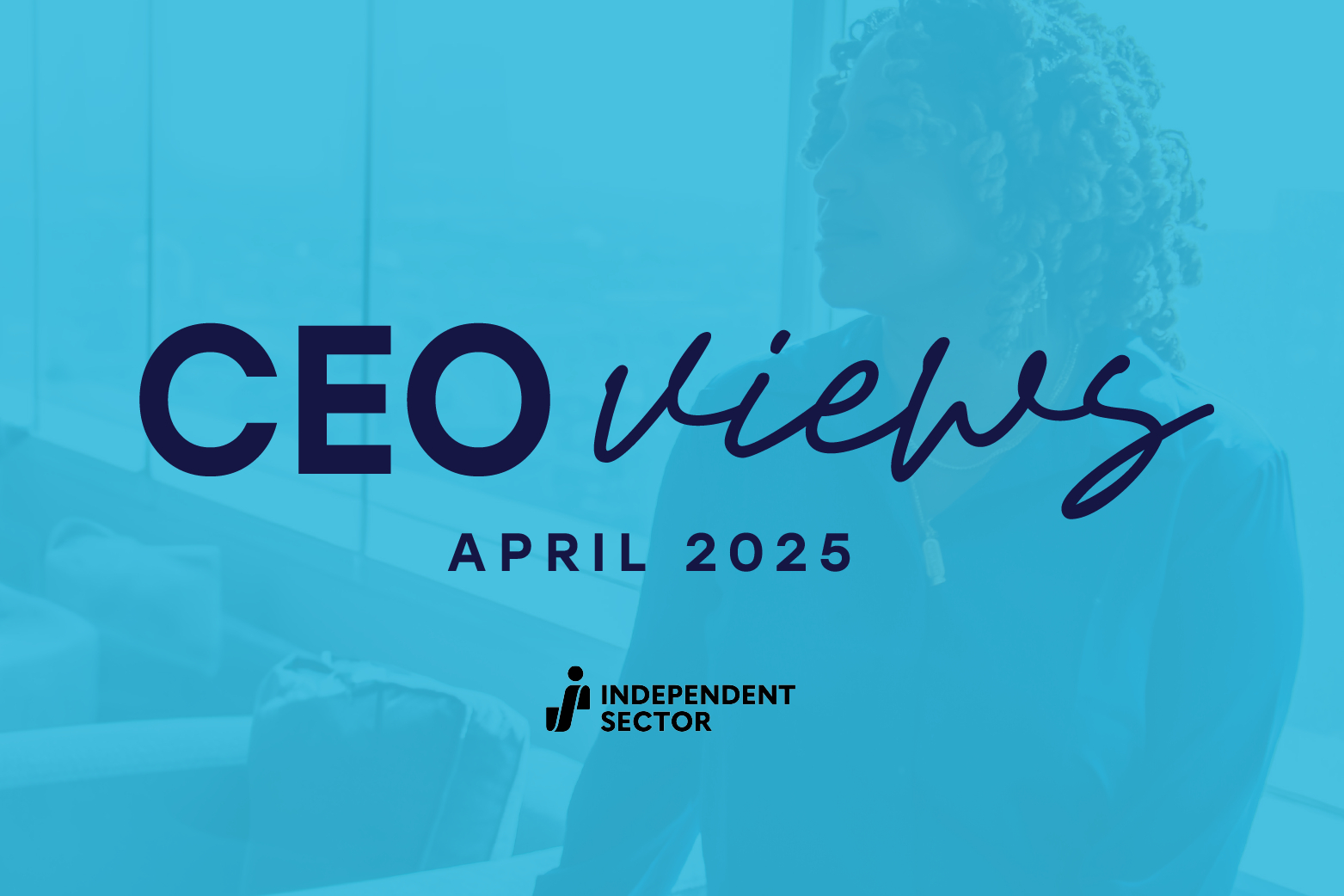Like millions of Americans, my family and I are part of a summer surge in service. Through our volunteer work with a global youth leadership nonprofit, I’ve watched my three children – and young people from all walks of life – build lifelong friendships while giving back.
During this critical inflection point, when so many feel disconnected from the institutions shaping our lives, service reminds us that we can still show up for each other and connect to something greater than ourselves.
Our 2025 Trust in Nonprofits and Philanthropy Report affirms that Americans remain deeply connected to the nonprofit sector. 57% of Americans report high trust in nonprofits – more than in government, business, or the media. That’s something to be proud of.
Trust is the foundation for nonprofit effectiveness, but trust is also a verb. It’s built through action.
We see that trust during everyday moments and urgent crises. After the recent floods in Texas, nonprofits were among the first responders on the scene. From national organizations like the Red Cross to local food banks, people turned to our sector when it mattered most.
But even as we hold the highest levels of public trust, nonprofits face serious challenges: from shrinking federal support to rising community needs and overstretched teams.
So, how do we preserve and strengthen trust in the charitable sector?
First, let’s recognize the unique value nonprofits bring to the table. While 59% of Americans believe nonprofits and government have conflicting priorities, 69% agree that the two must work together to solve our biggest challenges. Despite being essential partners, nonprofits are often left out of key federal policy conversations. That’s why we’re focused on creating more opportunities for the sector to solidify our voice and strengthen our capacity to engage in advocacy.
We also have to reckon with the fact that only 29% of Americans trust high-net-worth philanthropy. Let me say this plainly: philanthropy does not belong to the billionaire class. Philanthropists include the everyday heroes around us: aunties tithing at church, barbers offering free haircuts before school starts, and immigrant families pooling funds to cover a neighbor’s medical bill.
Philanthropy is not out of reach of everyday Americans but instead, belongs to all of us. That everyday generosity deserves strong institutions behind it. To safeguard trust, we must invest in the behind-the-scenes work of legal compliance, effective governance, strong financial oversight, and responsible fundraising. These foundational practices strengthen our effectiveness.
Just as essential is ensuring access to timely, reliable information – like our policy tracker – that helps nonprofit professionals adapt and lead through rapid change.
Of course, we must continue our focus on the nonprofit workforce, which carries enormous weight with limited resources. People make our civil society work, and we must extend the same care to them that we offer the communities they serve. That means prioritizing mental well-being, providing quality benefits, and investing in nonprofit workers who are struggling to make ends meet.
Sustaining our workforce requires collective support, not just individual grit. Now is the time to join coalitions, share back-office infrastructure, and build collective power at every level of our organizations. Because strong, connected workers build strong, connected communities.
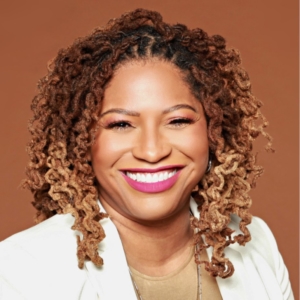
Dr. Akilah Watkins
We’ll dig deeper into these interconnected conversations at Independent Sector’s National Summit, October 27–29 in Atlanta. By coming together, we can realize our full potential to meet this moment and strengthen public trust for a resilient sector and civil society, where everyone can share in the fruits of our collective labor.
This is no time for lone wolves. If we want to protect trust, we have to show up together.
Dr. Akilah Watkins is president and CEO of Independent Sector.
